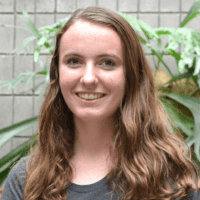
“Carotenoids quantification and quantitative trait loci (QTL) analysis in a tomato recombinant inbred line (RILs) population”
Project Summary:
Tomatoes are one of the most widely consumed fruit and a source of various nutrients in humans. However, consumers have been complaining of the decreasing flavor quality. Among the components of tomato flavor are aroma volatiles, which are produced by the catabolism of compounds such as carotenoids, namely apocarotenoids, amino acids and fatty-acids. Carotenoids have nutritional value as they serve as the pro-vitamin A, antioxidants, and can potentially decrease certain cancer types. In this project carotenoids were extracted from ripe tomato fruits of 132 recombinant inbred lines (RILs) derived from a cross between a cultivated tomato, Solanum lycopersicum (cv. NCEBR-1) and a close wild relative, S. pimpinellifolium (LA2093) and analyzed by super-critical fluid liquid-chromatography equipped with photo diode array detector. Then, carotenoids were quantified and a quantitative trait loci (QTL) analysis was performed using r/qtl to determine loci across the chromosomes accounting for carotenoids accumulation. Five out of six carotenoids showed a major QTL at the end of chromosome 12 explaining 9%-62% of the phenotypic variation, which is the location of the zeta-carotene isomerase gene, however, no QTL was co-localized with apocarotenoids QTLs at chromosome 1. Lycopene and beta-carotene, but not phytoene and zeta-carotene, shared a QTL at the same location on the beginning of chromosome 7 explaining 15% and 12% of the phenotypic variation, respectively. The causative gene for this QTL is unknown and finer mapping will be needed to determine it. Finally, this study showed that carotenoids levels are not affected by their catabolism into volatiles, but it produced some QTLs to be further investigated for both breeding and scientific purposes.
My Experience:
I enjoyed being an intern in the Giovannoni lab and getting to work alongside my mentor as well as many other accomplished scientists. I liked seeing how diverse the areas of study were even within the same lab. I have had the opportunity to gain confidence in my ability to successfully execute lab techniques and get results. The weekly seminars exposed me to just how many areas of plant biology there are and exposed me to disciplines I was previously unaware of. Coming into this summer, I knew I wanted to do scientific research, but this experience has given me a better idea of what areas of research I would most enjoy. Additionally, the bioinformatics workshops allowed me to better understand an area of science that I previously had little experience with.
